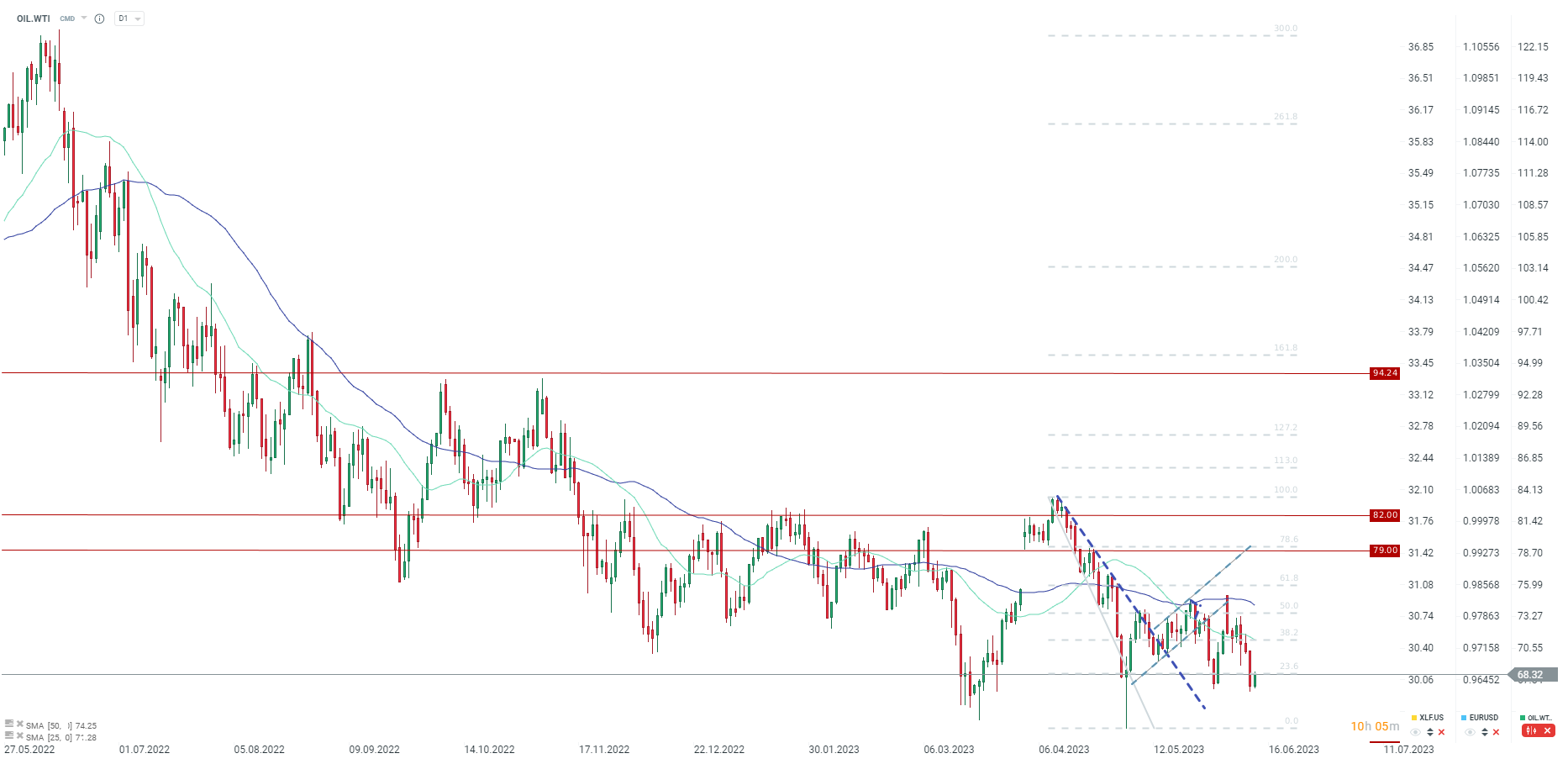The OPEC report remains relatively unchanged compared to the May report:
-
The OPEC report indicates maintaining oil demand growth forecast for the year 2023 roughly unchanged for the fourth consecutive time. The demand growth is expected to reach 2.35 million barrels per day (bpd) for this year. Demand is projected to reach 101.91 million bpd in entire 2023
-
The demand growth in China for this year is expected to be 0.84 million bpd, which is a slight increase compared to the previous forecast of 0.8 million bpd
-
Most of the demand growth is expected to occur in the second half of the year, which still creates uncertainty regarding the balance for this year
-
According to OPEC, the demand for oil from the cartel this year will be 29.3 million bpd, which is significantly higher than the May production level of 28.07 million bpd
-
Production in May declined by 464 thousand bpd due to voluntary production cuts
-
However, the impact of the cuts was mitigated by the increase in production by Nigeria and Iraq
The OPEC report doesn't change much but reflects relatively weak sentiment regarding the demand for this year. Nevertheless, OPEC still sees the potential for a significant deficit in the oil market this year, which theoretically should support prices.
 WTI bounced off the 23.6% retracement of the latest downward impulse. Source: xStation5
WTI bounced off the 23.6% retracement of the latest downward impulse. Source: xStation5

Market wrap: Oil gains amid US - Iran tensions 📈 European indices muted before US NFP report

📈 Gold jumps 1.5% ahead of NFP, hitting its highest level since Jan. 30

Silver rallies 3% 📈 A return of bullish momentum in precious metals?

Daily summary: Weak US data drags markets down, precious metals under pressure again!


